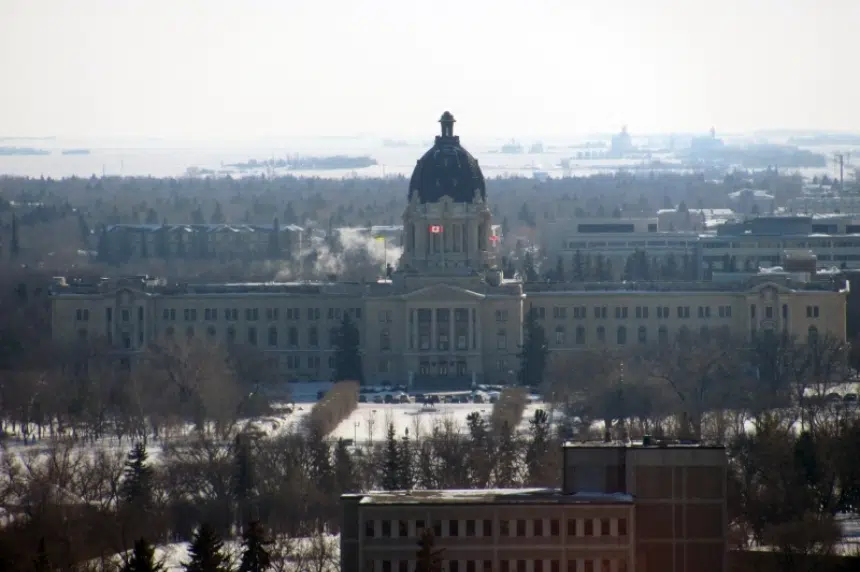A power failure in Regina on Tuesday afternoon forced the Saskatchewan government to postpone the unveiling of its COVID-19 vaccine delivery plan.
The media conference featuring Health Minister Paul Merriman and Dr. Saqib Shahab — the province’s chief medical health officer — was to be held at the Saskatchewan Legislative Building at 3 p.m.
After a power failure in south Regina blacked out the legislature, the media conference was pushed back to 3:30 p.m., and then to 4 p.m.
Shortly before 4 o’clock, the premier’s office issued a statement saying the event was being moved to Wednesday at 10 a.m., as SaskPower couldn’t estimate when power would be restored.
Premier Scott Moe and Scott Livingstone — the CEO of the Saskatchewan Health Authority — are to join Merriman and Shahab during Wednesday’s media conference.
Moe said during an appearance on Gormley on Monday that the province will be “ready to go” when the vaccine arrives, echoing a phrase Merriman used during a media conference last week.
The federal government is starting a dry run of its distribution protocols and Moe said his government has a “very robust plan” in place to dole out the vaccine when shipments arrive.
“Saskatchewan has a strong history when it comes to distributing vaccine, not only with our flu vaccine each and every year but we had one of the most well-regarded distribution plans put in place when we look back to the H1N1 vaccine that was distributed to the people across this province,” Moe said. “Dr. Shahab was second in the lead on that particular distribution and he’s obviously leading this one.
“We have a very robust plan put together. It’s ready to go into effect as soon as possible. We’re planning right now for the first week of January and it can ramp up at any given point in time.”
The provincial government previously said Saskatchewan’s per-capita share of the Pfizer vaccine — due to arrive in the first quarter of 2021 — is about 180,000 doses, which would be enough to vaccinate 90,000 people.
Moe said it’s the job of Shahab and the SHA to determine where those doses will go, but the premier told Gormley that health-care workers, workers in essential services, residents of long-term care homes and immunocompromised individuals would be among the first to get the vaccine.







